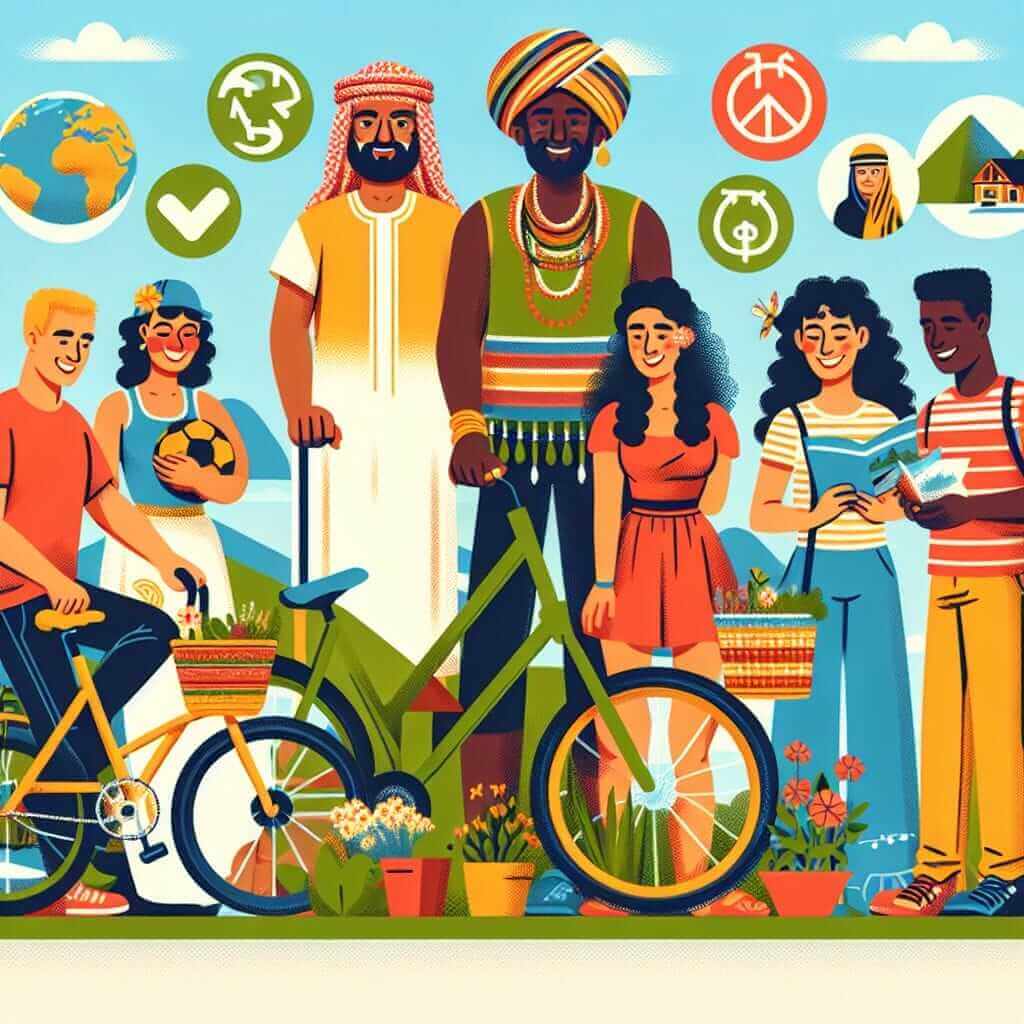As seasoned IELTS instructors with over two decades of experience, we at IELTS.NET understand the significance of “sustainable tourism” as a recurring theme in the IELTS exam. This comprehensive guide will delve into its meaning, provide illustrative examples, and equip you with the language skills to excel in your IELTS test.
Understanding Sustainable Tourism
“Sustainable tourism,” simply put, refers to practices that minimize the negative impacts of tourism while maximizing its positive contributions to the environment, economy, and local communities.
Key Aspects of Sustainable Tourism:
- Environmental Protection: Minimizing pollution, conserving resources, and protecting biodiversity. Imagine eco-friendly accommodations using solar power and tourists choosing reusable water bottles instead of plastic ones.
- Economic Viability: Ensuring tourism benefits local communities, creating jobs, and supporting local businesses. Think of tourists buying handicrafts directly from artisans, contributing directly to the local economy.
- Socio-cultural Respect: Preserving local traditions, customs, and heritage while promoting cultural exchange. Picture tourists participating respectfully in local festivals, fostering cross-cultural understanding.

Illustrative Examples
Let’s solidify our understanding with concrete examples:
- Ecotourism in Costa Rica: Renowned for its commitment to preserving rainforests, Costa Rica offers eco-friendly tours and accommodations, attracting environmentally conscious travelers.
- Community-Based Tourism in Nepal: Trekking in Nepal often involves staying in locally owned guesthouses, providing income directly to communities and preserving their traditional way of life.
Applying the Concept in the IELTS Exam
Writing Task 2:
Sample Question:
“Tourism is seen as a positive factor for economic growth. However, its impact on the environment and local cultures is a cause for concern. What are your views?”
Sample Response:
“While tourism undoubtedly boosts economies, its sustainability is paramount. Governments should prioritize eco-friendly practices like promoting energy-efficient transportation and responsible waste management. Moreover, encouraging cultural exchange programs fosters respect between tourists and locals.”
Speaking Part 3:
Examiner: “How can tourism contribute to the development of local communities?”
Candidate: “Sustainable tourism initiatives, such as employing locals in tourism businesses and sourcing products from local artisans, empower communities economically. This fosters a sense of ownership and pride while preserving their unique heritage.”
Common Errors to Avoid
- Generalizations: Avoid sweeping statements like “All tourism is bad for the environment.” Use specific examples to support your arguments.
- Vocabulary Misuse: Understand the nuances of words like “preservation,” “conservation,” and “protection” to articulate your ideas accurately.
Practice Tips for IELTS Success
- Stay Updated: Regularly read articles and reports on sustainable tourism to expand your vocabulary and knowledge.
- Practice Writing: Develop well-structured essays, incorporating examples and linking your arguments effectively.
- Engage in Discussions: Participating in discussions about tourism’s impacts helps solidify your understanding and improves fluency.
Conclusion
Mastering the concept of “sustainable tourism” is not just about acing the IELTS exam; it’s about understanding a crucial global issue. By familiarizing yourself with its nuances, you equip yourself with the language skills and knowledge to excel in your IELTS test and contribute to a more responsible and sustainable future for tourism. We encourage you to share your thoughts in the comments below or explore our related articles for further insights.